Aug
27
2019
 Acupuncture is defined as an intervention involving placing thin needles into specified acupuncture points in order to relieve symptoms or promote healing. What is special about the acupoints? They are supposed to be locations where the flow of life force (chi) can be manipulated. There are a few problems with the claims made for acupuncture. First, there is no place for vitalism – belief in a life force – in modern science. There is no evidence that it exists and no reason to hypothesize that it exists. It is worse than wrong. It is unnecessary. There is also no convincing evidence, after a century of research and thousands of studies, that acupuncture works for anything.
Acupuncture is defined as an intervention involving placing thin needles into specified acupuncture points in order to relieve symptoms or promote healing. What is special about the acupoints? They are supposed to be locations where the flow of life force (chi) can be manipulated. There are a few problems with the claims made for acupuncture. First, there is no place for vitalism – belief in a life force – in modern science. There is no evidence that it exists and no reason to hypothesize that it exists. It is worse than wrong. It is unnecessary. There is also no convincing evidence, after a century of research and thousands of studies, that acupuncture works for anything.
But also, an independently fatal flaw in the notion of acupuncture is that there is no evidence that acupuncture points exist. They are a complete fiction. They have no basis in anatomy, physiology, neuroscience, biochemistry, or empirical evidence. A recent study highlights this fact – Accuracy and Precision in Acupuncture Point Location: A Critical Systematic Review. This is a review by acupuncturists in the Journal of Acupuncture and Meridian Studies. The authors reviewed the literature for any studies that looked at the precision and reliability of the location of acupoints and found:
Considerable variation in localization of acupoints was reported among qualified medical acupuncturists. Variation in point location among qualified non-medical acupuncturists is unknown due to lack of any identified study. The directional method was found to be significantly inaccurate and imprecise in all studies that evaluated the method.
So acupuncturists cannot agree upon where alleged acupoints actually are on the body, and the primary method to localize them was both inaccurate and imprecise. The simplest explanation for this fact is that acupoints don’t exist. Even if you want to hold out the illogical conclusion that acupoints do exist, even though they have no basis in theory and they cannot be detected by any objective measure, you cannot avoid the conclusion based on this evidence that acupuncturists don’t know where they are. So how, then, can they claim to be able to stick needles into acupoints? Short answer – they can’t.
Continue Reading »
Apr
09
2019
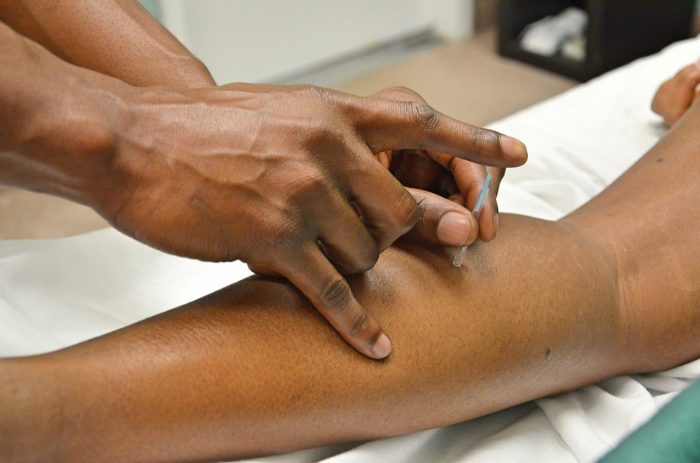 In 2017 Chinese scientists published a paper in the journal Chinese Acupuncture & Moxibustion titled, “Discussion on quantum entanglement theory and acupuncture.” There are several layers to the erosion of science that this paper represents. Fortunately the paper was recently retracted, for reasons the editors do not make clear. I suspect they were just embarrassed.
In 2017 Chinese scientists published a paper in the journal Chinese Acupuncture & Moxibustion titled, “Discussion on quantum entanglement theory and acupuncture.” There are several layers to the erosion of science that this paper represents. Fortunately the paper was recently retracted, for reasons the editors do not make clear. I suspect they were just embarrassed.
The first layer I would like to peal away is the use of quantum mechanics to essentially explain magic. The authors write (originally in Chinese – this is the bad translation):
After learning the quantum entanglement, the authors have found that many characteristics of quantum are reflected in TCM, acupuncture theory and clinical practice. For example, the quantum entanglement phenomenon is mutually verified with the holism, yinyang doctrine, the theory of primary, secondary, root and knot in TCM, etc. It can be applied to interpret the clinical situations which is difficult to be explained in clinical practice, such as the instant effect of acupuncture, multi-point stimulation in one disorder and the points with specific effects.
Let me parse that a bit for you. What they are essentially admitting is that there are several aspects to acupuncture that cannot be explained with actual science, by appealing to evidence, logic, or what has been established about how the human body actually works. One of those aspects is the “instant effect” that acupuncture often seems to have on patient.
In real life, it takes time for the body to respond to any intervention. There are some drugs that, when given intravenously, can have a very rapid effect. Otherwise it takes time for substances to get absorbed, be distributed to their targets, for cells to respond, to make proteins, to begin healing, etc. Depending on the effect and the mechanism of the intervention, an almost instant response to treatment may be physiologically impossible.
Continue Reading »
Jun
20
2017
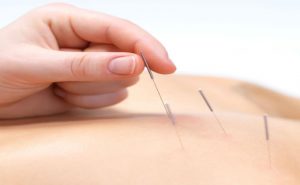 Acupuncture still doesn’t work. We have thousands of studies collectively showing that it does not matter where you stick the needles or even if you stick the needles. Acupuncture is an elaborate placebo, and nothing else. It is not based on any sound scientific principles or knowledge about anatomy or neurophysiology. It is as much a scientific dead end as homeopathy, the ether, phrenology, and the four humors.
Acupuncture still doesn’t work. We have thousands of studies collectively showing that it does not matter where you stick the needles or even if you stick the needles. Acupuncture is an elaborate placebo, and nothing else. It is not based on any sound scientific principles or knowledge about anatomy or neurophysiology. It is as much a scientific dead end as homeopathy, the ether, phrenology, and the four humors.
This, of course, creates a dilemma for acupuncture proponents. For a few decades they have been crying for scientific study of what they are sure (from their own anecdotal experience and philosophy) must work, but as the science came in it showed that their favorite treatment did not work. For a while you can get away with criticizing the studies – they are not doing it right. But then acupuncturists design and carry out more and more rigorous studies, accounting for all their criticisms, and acupuncture still doesn’t work.
We are definitely way past the point (thousands of studies over several decades) to conclude that acupuncture is a lost cause. Any intellectually honest scientist at this point would have to conclude they were wrong, and move on. Because this is medicine, and not just abstract science, there is also an ethical component. I could argue that it is now unethical to stick acupuncture needles into patients because we have sufficient evidence to conclude doing so is of zero benefit, and is also invasive and carries some risk.
That, of course, is not what happened. Instead acupuncturists ignored the research, or continued to nitpick and deny. Or they just cherry pick the studies that show what they want (even if they have to misinterpret them). But still they want to sell acupuncture as a modern science-based treatment, but pesky high quality studies keep getting in the way.
Continue Reading »
May
11
2017
The FDA recently amended their draft proposal for: FDA Education Blueprint for Health Care Providers
Involved in the Management or Support of Patients with Pain. The draft proposal includes this statement:
“Nonpharmacologic therapies – includes psychological, physical rehabilitative, surgical approaches; and complementary therapies.”
And below further defines, ” Complementary therapies – e.g., acupuncture, chiropracty”
Recommending:
“HCPs should be knowledgeable about the range of available therapies, when they may be helpful, and when they should be used as part of a multidisciplinary approach to pain management.”
While the current problems with opioid overuse are significant and adequate pain management remains a challenge, introducing unscientific methods will not help health consumers and will only waste resources. Introduction of these recommendations for unscientific methods does not reflect scientific consensus, but intense lobbying by proponents who stand to financially gain from their inclusion.
Acupuncture specifically has been studied extensively, with thousands of clinical trials, and yet proponents have not been able to demonstrate that acupuncture is effective for any indication, including pain. In short, acupuncture does not work.
Continue Reading »
Jan
23
2017
 Recently scientists published initial results from an ambitious project to reproduce the results of 50 influential cancer studies. The first five studies resulted in one clear failure to replicate, two partial replications, and two with uninterpretable results.
Recently scientists published initial results from an ambitious project to reproduce the results of 50 influential cancer studies. The first five studies resulted in one clear failure to replicate, two partial replications, and two with uninterpretable results.
This is how science works. No one study is definitive, because there are simply too many ways to generate spurious results (even without fraud and with the best intentions). Replication is the final arbiter – any result that is real should consistently reproduce. Results that are spurious will be inconsistent.
These are the core lessons that I have been repeating here and on SBM – most studies are flawed and their results are unreliable. Most false studies are false positive. Even experienced and well-meaning researchers can fall victim to p-hacking and other subtle errors. You can only arrive at a reliable conclusion by looking at a mature and robust research program involving numerous studies and replications. The various replication projects that are under way are confirming this overall impression.
Let’s turn to one of my favorite examples: acupuncture. Acupuncture involved sticking thin needles into specific areas of the body in order to provoke specific clinical benefit, such as pain reduction. There have been several thousand studies of acupuncture. When you review all the research you find, put simply, that acupuncture does not work, for anything. There is no specific effect here, one that is reliably found when appropriately controlled for. The entirety of the research is highly consistent with the conclusion that acupuncture is nothing more than a theatrical placebo.
Continue Reading »
Jul
01
2016
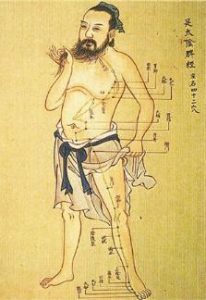 A recent Time Magazine article tries to answer the question: Does Acupunture Work? Their answer:
A recent Time Magazine article tries to answer the question: Does Acupunture Work? Their answer:
For certain conditions—particularly pain—there’s evidence it works. Exactly how it works is an open question.
This answer is wrong. Granted, this is a deceptively complex question and there is a tremendous amount of authoritative misinformation out there, so it is hard to blame a journalist for getting this one wrong.
Perhaps the biggest pitfall in science journalism is the problem of outlier or non-representative experts. A journalist talks to someone who has appropriate credentials, but whose opinion on a topic is either a minority opinion, or just one side of a legitimate controversy. The journalist then mistakes this one person’s opinion for the consensus scientific opinion.
Continue Reading »
May
06
2016
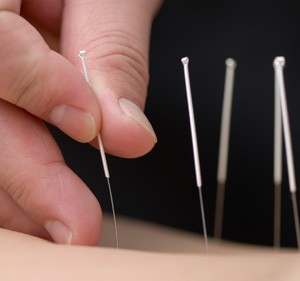 A newly updated Cochrane systematic review of 12 studies looking at acupuncture for the treatment of tension-type headaches (TTH) concluded:
A newly updated Cochrane systematic review of 12 studies looking at acupuncture for the treatment of tension-type headaches (TTH) concluded:
The available evidence suggests that a course of acupuncture consisting of at least six treatment sessions can be a valuable option for people with frequent tension-type headache.
This has led to another round of headlines that, “Acupuncture works but no one knows how.”
A closer look at the data, however, does not back up that conclusion, in my opinion. Cochrane is generally considered to be the gold standard for evidence-based systematic reviews, but their history is dodgy when it comes to unconventional treatments. For example, they famously had to withdraw their review of homeopathic occillococcinum for the flu because they concluded, although the evidence was insufficient to recommend, it was “promising” and deserved further research.
Their updated review is not much better, however:
There is insufficient good evidence to enable robust conclusions to be made about Oscillococcinum® in the prevention or treatment of influenza and influenza-like illness. Our findings do not rule out the possibility that Oscillococcinum® could have a clinically useful treatment effect but, given the low quality of the eligible studies, the evidence is not compelling.
Continue Reading »
Jul
24
2015
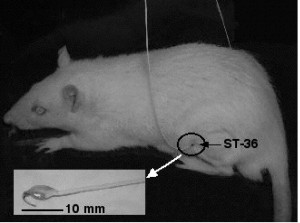 The pattern is now quite familiar – a study looking at some physiological outcome while rats or mice are being jabbed with needles is breathlessly presented as, “finally we know how acupuncture works.” As is always the case, a closer look reveals that the study shows nothing of the sort.
The pattern is now quite familiar – a study looking at some physiological outcome while rats or mice are being jabbed with needles is breathlessly presented as, “finally we know how acupuncture works.” As is always the case, a closer look reveals that the study shows nothing of the sort.
The current study making the rounds is, “Effects of Acupuncture, RU-486 on the Hypothalamic-Pituitary-Adrenal Axis in Chronically Stressed Adult Male Rats.” We are told that acupuncture has the same effect as pain medication, but honestly I don’t see that anywhere in the study.
The study presents two experiments with rats in which there is a control group, a stress group, stress plus acupuncture, and stress plus sham acupuncture. The first thing to notice is that the rats were not actually getting acupuncture. They were getting the fiction known as “electroacupuncture.” Electroacupuncture is not a real thing – it’s just electrical stimulation through a needle which is called an acupuncture needle.
Continue Reading »
Feb
19
2015
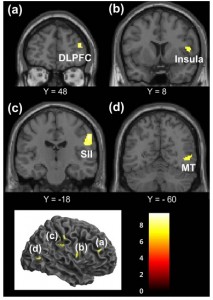 There are two basic schools of thought when it comes to acupuncture, which is the practice of placing thin needles into alleged acupuncture points in order to have a therapeutic or symptomatic effect. The “traditional” interpretation is that the needles are stimulating a physiological response of some kind at the acupuncture points. Within this school there is a range of opinions as to whether this response is due to a biochemical, neurological, or another known biological response or whether it is due to the still more traditional (but actually less than a century old) belief that the needles are manipulating the life force or Qi.
There are two basic schools of thought when it comes to acupuncture, which is the practice of placing thin needles into alleged acupuncture points in order to have a therapeutic or symptomatic effect. The “traditional” interpretation is that the needles are stimulating a physiological response of some kind at the acupuncture points. Within this school there is a range of opinions as to whether this response is due to a biochemical, neurological, or another known biological response or whether it is due to the still more traditional (but actually less than a century old) belief that the needles are manipulating the life force or Qi.
The other school holds that acupuncture is essentially an elaborate placebo. (Note – this article contains all the references necessary to support my statements below, so I will not repeat them.) Any apparent response is a non-specific response to the attention of the practitioner, expectation, distraction from pain, simple regression to the mean, and other illusory effects.
Each school makes different predictions about the various lines of evidence that can be brought to bear to resolve this question. There have been in total several thousand clinical studies looking at the apparent effects of acupuncture. These have failed to convincingly reject the null hypothesis, meaning that they have not demonstrated a clear biological response to acupuncture for any indication. The better controlled studies consistently show that needle location does not matter (sham acupuncture), and that needle insertion does not matter (placebo acupuncture). You can literally have a non-acupuncturist randomly poke someone with toothpicks and get the same response as the full acupuncture treatment.
Continue Reading »
Jul
15
2014
Alternative Medicine’s best friend, and in my opinion largely responsible for what popularity it has, is a gullible media. I had thought we were turning a corner, and the press were over the gushing maximally clueless approach to CAM, and were starting to at least ask some probing questions (like, you know, does it actually work), but a 2006 BBC documentary inspires a more pessimistic view.
The documentary is part of a BBC series hosted by Kathy Sykes: Alternative Medicine, The Evidence. This episode is on acupuncture. The episode is from 2006, but was just posted on YouTube as a “2014 documentary.” Unfortunately, old news frequently has a second life on social media.
First, let me point out that Sykes is a scientist (a fact she quickly points out). She is a physicist, which means that she has the credibility of being able to say she is a scientist but has absolutely no medical training. It’s the worst case scenario – she brings the credibility of being a scientist, and probably thinks that her background prepares her to make her own judgments about the evidence, and yet clearly should have relied more on real experts.
Continue Reading »
 Acupuncture is defined as an intervention involving placing thin needles into specified acupuncture points in order to relieve symptoms or promote healing. What is special about the acupoints? They are supposed to be locations where the flow of life force (chi) can be manipulated. There are a few problems with the claims made for acupuncture. First, there is no place for vitalism – belief in a life force – in modern science. There is no evidence that it exists and no reason to hypothesize that it exists. It is worse than wrong. It is unnecessary. There is also no convincing evidence, after a century of research and thousands of studies, that acupuncture works for anything.
Acupuncture is defined as an intervention involving placing thin needles into specified acupuncture points in order to relieve symptoms or promote healing. What is special about the acupoints? They are supposed to be locations where the flow of life force (chi) can be manipulated. There are a few problems with the claims made for acupuncture. First, there is no place for vitalism – belief in a life force – in modern science. There is no evidence that it exists and no reason to hypothesize that it exists. It is worse than wrong. It is unnecessary. There is also no convincing evidence, after a century of research and thousands of studies, that acupuncture works for anything.
 In 2017 Chinese scientists published a paper in the journal Chinese Acupuncture & Moxibustion titled, “
In 2017 Chinese scientists published a paper in the journal Chinese Acupuncture & Moxibustion titled, “ Acupuncture still
Acupuncture still  Recently scientists
Recently scientists A recent Time Magazine article tries to answer the question:
A recent Time Magazine article tries to answer the question:  A newly updated
A newly updated 






